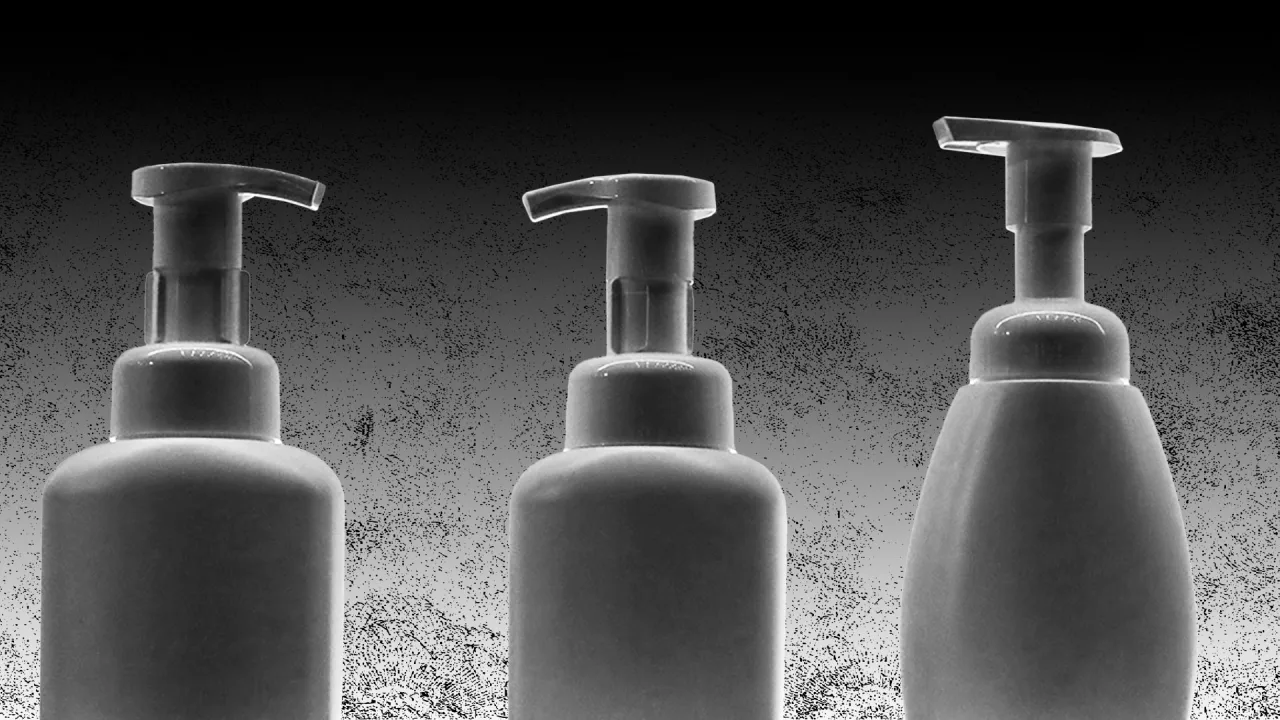Chemicals in common personal-care products like soap and makeup could cause girls to start puberty early
Puberty has been starting earlier for girls over the past several decades. In the mid-19th century, girls typically got their first periods at an average age of 16.5 years. Today, the average is anywhere between 10 and 13 years. While experts have explored many theories as to why the onset of puberty is getting younger—such as stress, obesity, and per- and polyfluoroalkyl substances (PFAS)—new research suggests it could be due to endocrine-disrupting chemicals that are found in personal-care products. Research from the Endocrine Society, published in Endocrinology, points to the exposure coming from detergents, deodorants, and other personal-care items. “We conducted a comprehensive screen of 10,000 environmental compounds with extensive follow-up studies using human brain cells that control the reproductive axis, and our team identified several substances that may contribute to early puberty in girls,” study author Natalie Shaw, M.D., of the National Institutes of Health’s National Institute of Environmental Health Sciences said in the report. Of the chemicals, musk ambrette—a fragrance used in certain detergents, perfumes, and care products, as well as certain medications called cholinergic agonists—was of high concern. Some rat studies have shown that musk ambrette crosses the blood-brain barrier, the report noted. “More research is needed to confirm our findings,” Shaw said. “But the ability of these compounds to stimulate key receptors in the hypothenalamus—the gonadotropin-releasing hormone receptor and the kisspeptin receptor—raises the possibility that exposure may prematurely activate the reproductive axis in children.” Endocrine-disrupting chemicals have been watched more closely in recent years as experts say they interfere with the body’s natural hormone-controlling system. And premature puberty is a cause for concern, as an early onset has links to major health issues including diabetes, heart issues, breast cancer, fertility issues, and even mental health problems. Experts have explored many other potential reasons for early puberty. A small New York study suggested COVID-19-era stress may be a culprit. Likewise, evidence has been documented in recent studies that PFAS—which are in everything from food containers and cookware to clothing—hinder growth and development in children. World leaders have been taking steps to restrict hormone-disruptors in our environment. This year, the Biden administration issued new drinking water standards to protect the public from PFAS. And in 2023, the European Union banned six pesticides it deemed unsafe due to endocrine-disrupting potential. As for musk ambrette, Europe and Canada now restrict use of the chemical. However, while the U.S. Food and Drug Administration (FDA) removed the fragrance from its “safe” list, it’s still found in products. “This study suggests that, out of an abundance of caution, it is important for parents to only use personal-care products for their children that are federally regulated,” Shaw said.

Puberty has been starting earlier for girls over the past several decades. In the mid-19th century, girls typically got their first periods at an average age of 16.5 years. Today, the average is anywhere between 10 and 13 years.
While experts have explored many theories as to why the onset of puberty is getting younger—such as stress, obesity, and per- and polyfluoroalkyl substances (PFAS)—new research suggests it could be due to endocrine-disrupting chemicals that are found in personal-care products.
Research from the Endocrine Society, published in Endocrinology, points to the exposure coming from detergents, deodorants, and other personal-care items. “We conducted a comprehensive screen of 10,000 environmental compounds with extensive follow-up studies using human brain cells that control the reproductive axis, and our team identified several substances that may contribute to early puberty in girls,” study author Natalie Shaw, M.D., of the National Institutes of Health’s National Institute of Environmental Health Sciences said in the report.
Of the chemicals, musk ambrette—a fragrance used in certain detergents, perfumes, and care products, as well as certain medications called cholinergic agonists—was of high concern. Some rat studies have shown that musk ambrette crosses the blood-brain barrier, the report noted.
“More research is needed to confirm our findings,” Shaw said. “But the ability of these compounds to stimulate key receptors in the hypothenalamus—the gonadotropin-releasing hormone receptor and the kisspeptin receptor—raises the possibility that exposure may prematurely activate the reproductive axis in children.”
Endocrine-disrupting chemicals have been watched more closely in recent years as experts say they interfere with the body’s natural hormone-controlling system. And premature puberty is a cause for concern, as an early onset has links to major health issues including diabetes, heart issues, breast cancer, fertility issues, and even mental health problems.
Experts have explored many other potential reasons for early puberty. A small New York study suggested COVID-19-era stress may be a culprit. Likewise, evidence has been documented in recent studies that PFAS—which are in everything from food containers and cookware to clothing—hinder growth and development in children.
World leaders have been taking steps to restrict hormone-disruptors in our environment. This year, the Biden administration issued new drinking water standards to protect the public from PFAS. And in 2023, the European Union banned six pesticides it deemed unsafe due to endocrine-disrupting potential.
As for musk ambrette, Europe and Canada now restrict use of the chemical. However, while the U.S. Food and Drug Administration (FDA) removed the fragrance from its “safe” list, it’s still found in products.
“This study suggests that, out of an abundance of caution, it is important for parents to only use personal-care products for their children that are federally regulated,” Shaw said.






















